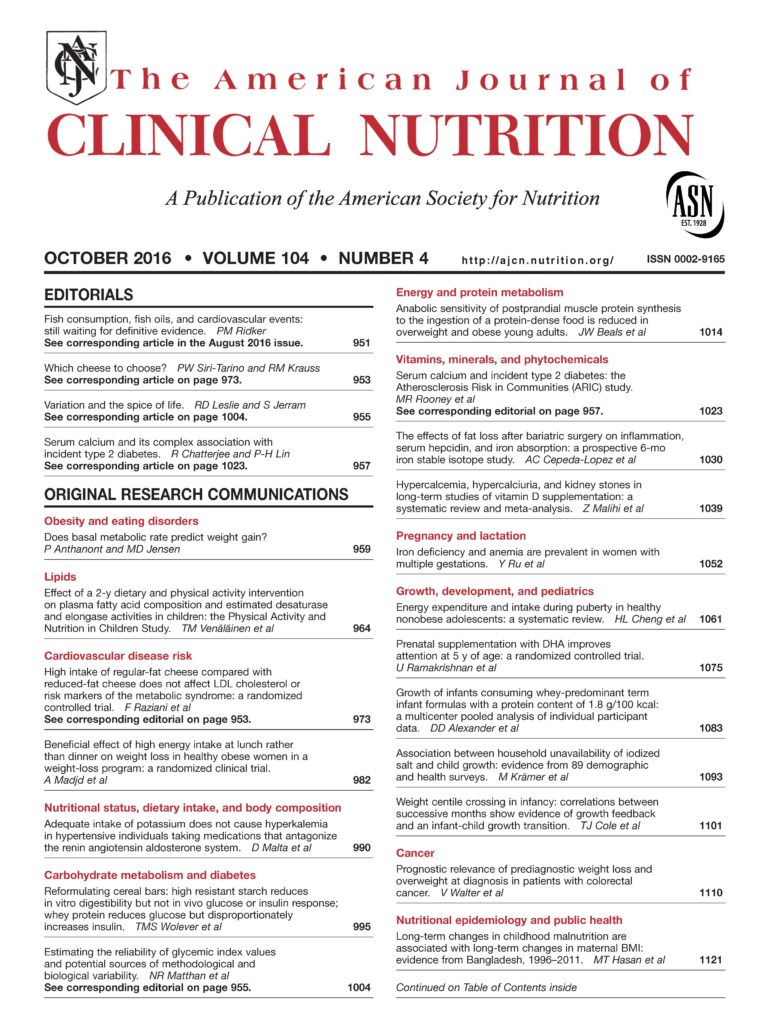What are the hot topics in nutrition being discussed on social media and in the news this week? Red wine for health, dairy fat, and protein ingestion before sleep are 3 topics from ASN journals that are trending. Read on to learn more about this research.
Resveratrol: How Much Wine Do You Have to Drink to Stay Healthy?

Advances in Nutrition, Volume 7, Issue 4, July 2016, Pages 706–718, https://doi.org/10.3945/an.115.011627
Abstract: Resveratrol is a naturally occurring stilbene endowed with multiple health-promoting effects. It is produced by certain plants including several dietary sources such as grapes, apples, raspberries, blueberries, plums, peanuts, and products derived therefrom (e.g., wine). Resveratrol can be isolated and purified from these biological sources or synthesized in a few steps with an overall high yield. This compound and its glucoside, the trans-polydatin piceid, have received worldwide attention for their beneficial effects on cardiovascular, inflammatory, neurodegenerative, metabolic, and age-related diseases. These health-promoting effects are particularly attractive given the prevalence of resveratrol-based nutraceuticals and the paradoxical epidemiologic observation that wine consumption is inversely correlated to the incidence of coronary heart disease. However, the notion of resveratrol as a “magic bullet” was recently challenged by clinical trials showing that this polyphenol does not have a substantial influence on health status and mortality risk. In the present review, we discuss the proposed therapeutic attributes and the mode of molecular actions of resveratrol. We also cover recent pharmacologic efforts to improve the poor bioavailability of resveratrol and influence the transition between body systems in humans. We conclude with some thoughts about future research directions that might be meaningful for resolving controversies surrounding resveratrol.
Serial measures of circulating biomarkers of dairy fat and total and cause-specific mortality in older adults: the Cardiovascular Health Study

The American Journal of Clinical Nutrition, Volume 108, Issue 3, September 2018, Pages 476–484, https://doi.org/10.1093/ajcn/nqy117
Background: Controversy has emerged about the benefits compared with harms of dairy fat, including concerns over long-term effects. Previous observational studies have assessed self-reported estimates of consumption or a single biomarker measure at baseline, which may lead to suboptimal estimation of true risk.
Objective: The aim of this study was to investigate prospective associations of serial measures of plasma phospholipid fatty acids pentadecanoic (15:0), heptadecanoic (17:0), and trans-palmitoleic (trans-16:1n–7) acids with total mortality, cause-specific mortality, and cardiovascular disease (CVD) risk among older adults.
Join ASN!
And get access to immersive learning experiences, collaboration, and networking with the greatest minds in nutrition.
Protein Ingestion before Sleep Increases Muscle Mass and Strength Gains during Prolonged Resistance-Type Exercise Training in Healthy Young Men

The Journal of Nutrition, Volume 145, Issue 6, June 2015, Pages 1178–1184, https://doi.org/10.3945/jn.114.208371
Background: It has been demonstrated that protein ingestion before sleep increases muscle protein synthesis rates during overnight recovery from an exercise bout. However, it remains to be established whether dietary protein ingestion before sleep can effectively augment the muscle adaptive response to resistance-type exercise training.
Objective: Here we assessed the impact of dietary protein supplementation before sleep on muscle mass and strength gains during resistance-type exercise training.
Exceptional Science & Inspiring Speakers






